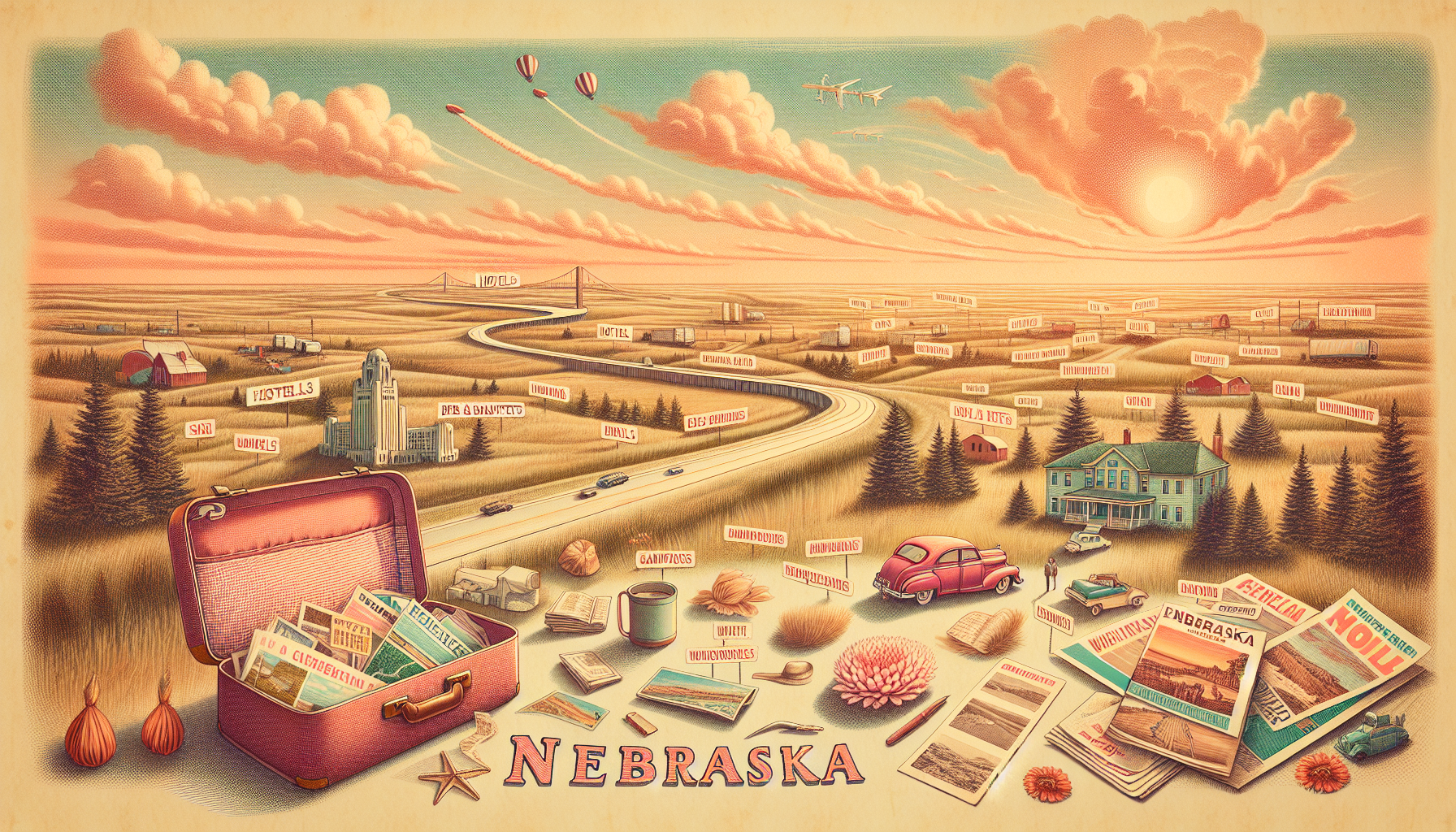Nebraska's Community Gardens

Traveling through Nebraska, one may be surprised to discover the vibrant community garden scene that thrives in many of its towns and cities. Community gardens are plots of land where residents come together to grow fruits, vegetables, and flowers, often sharing knowledge, resources, and labor. In the context of food and drink, these gardens play a significant role in providing fresh produce to local communities and promoting sustainable food systems.
One exemplary community garden in Nebraska is the Lincoln Community Garden, located in the southeast part of the city of Lincoln. This garden spans approximately 12 acres and features over 400 plots, making it one of the largest community gardens in the state. The garden has been in operation since 1996 and offers residents the opportunity to rent a plot and grow their own fruits and vegetables using organic methods. The garden also features a shared toolshed, irrigation system, and educational programs.
Another notable example is the Omaha Community Garden, which has been operating since 1983 in the heart of Omaha. This garden is nestled in a 1.5-acre plot in the Hanscom Park neighborhood and features over 80 plots, a greenhouse, and a composting area. The garden is managed by a volunteer-led board and offers workshops, gardening advice, and social events for its members. The Omaha Community Garden also partners with local organizations to provide gardening opportunities for low-income families and individuals with disabilities.
Community gardens in Nebraska also serve as important educational tools, providing hands-on learning experiences for children and adults alike. For instance, the University of Nebraska-Lincoln's (UNL) Community Garden, located on campus, offers a variety of educational programs and workshops on gardening, sustainable living, and nutrition. The garden also serves as a research site for UNL students and faculty, who study topics such as soil science, entomology, and horticulture.
In addition to providing educational opportunities and promoting sustainable food systems, Nebraska's community gardens also serve as vital community hubs. Many gardens host social events, such as garden tours, potlucks, and volunteer days, which foster a sense of community and connection among gardeners. For example, the Grand Island Community Garden, located in the Fonner Park neighborhood, hosts an annual garden festival, which features music, food, and gardening demonstrations.
Nebraska's community gardens also face challenges such as soil contamination, water scarcity, and urban sprawl. However, many gardeners and organizations are working to address these issues through innovative solutions such as rainwater harvesting, composting, and permaculture design. For instance, the Kearney Community Garden, located in the Cottonmill Park neighborhood, has implemented a rainwater harvesting system to reduce its water consumption.
In conclusion, Nebraska's community gardens are vibrant and diverse spaces that provide a range of benefits for local communities, from promoting sustainable food systems to fostering social connections. Whether you are a gardener, a food enthusiast, or simply looking for a unique experience, Nebraska's community gardens are definitely worth exploring.
One exemplary community garden in Nebraska is the Lincoln Community Garden, located in the southeast part of the city of Lincoln. This garden spans approximately 12 acres and features over 400 plots, making it one of the largest community gardens in the state. The garden has been in operation since 1996 and offers residents the opportunity to rent a plot and grow their own fruits and vegetables using organic methods. The garden also features a shared toolshed, irrigation system, and educational programs.
Another notable example is the Omaha Community Garden, which has been operating since 1983 in the heart of Omaha. This garden is nestled in a 1.5-acre plot in the Hanscom Park neighborhood and features over 80 plots, a greenhouse, and a composting area. The garden is managed by a volunteer-led board and offers workshops, gardening advice, and social events for its members. The Omaha Community Garden also partners with local organizations to provide gardening opportunities for low-income families and individuals with disabilities.
Community gardens in Nebraska also serve as important educational tools, providing hands-on learning experiences for children and adults alike. For instance, the University of Nebraska-Lincoln's (UNL) Community Garden, located on campus, offers a variety of educational programs and workshops on gardening, sustainable living, and nutrition. The garden also serves as a research site for UNL students and faculty, who study topics such as soil science, entomology, and horticulture.
In addition to providing educational opportunities and promoting sustainable food systems, Nebraska's community gardens also serve as vital community hubs. Many gardens host social events, such as garden tours, potlucks, and volunteer days, which foster a sense of community and connection among gardeners. For example, the Grand Island Community Garden, located in the Fonner Park neighborhood, hosts an annual garden festival, which features music, food, and gardening demonstrations.
Nebraska's community gardens also face challenges such as soil contamination, water scarcity, and urban sprawl. However, many gardeners and organizations are working to address these issues through innovative solutions such as rainwater harvesting, composting, and permaculture design. For instance, the Kearney Community Garden, located in the Cottonmill Park neighborhood, has implemented a rainwater harvesting system to reduce its water consumption.
In conclusion, Nebraska's community gardens are vibrant and diverse spaces that provide a range of benefits for local communities, from promoting sustainable food systems to fostering social connections. Whether you are a gardener, a food enthusiast, or simply looking for a unique experience, Nebraska's community gardens are definitely worth exploring.
